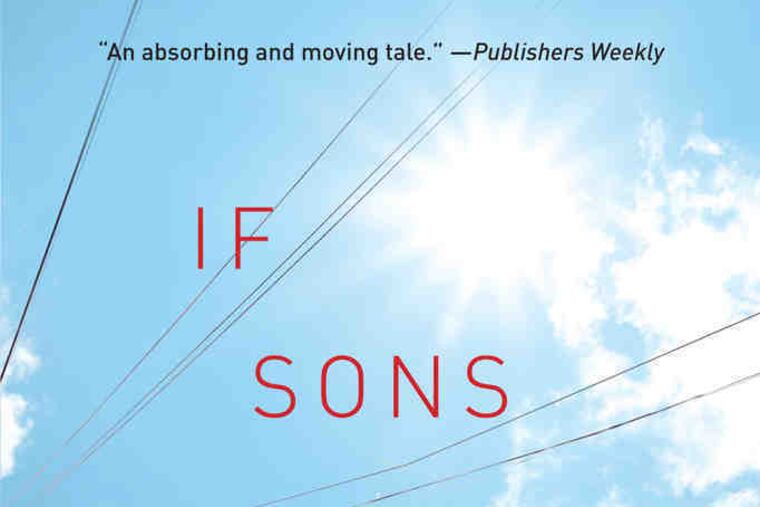Cary weaves complex tale of family, migration
Lorene Cary achieved national recognition as a writer when her book Black Ice was published in 1991. The Los Angeles Times Book Review touted Black Ice as a story about "being black in a quintessentially white world."

Reviewed by Bernice L. McFadden
Lorene Cary achieved national recognition as a writer when her book
Black Ice
was published in 1991. The Los Angeles Times Book Review touted
Black Ice
as a story about "being black in a quintessentially white world."
With her latest work, Cary does not stray from the theme that first garnered her fame; instead, she holds fast and delves further. The result is a multilayered, complex, and engaging tale of love, social injustice, and migrations - both physical and emotional.
Between the 1920s and 1960s, millions of African Americans migrated from the South to all points north and west. Today, however, census records show that the number of African Americans moving back south is climbing steadily every year.
This is one of the subplots of If Sons, Then Heirs.
Having chosen to tell this particular tale, Cary may have unwittingly set in motion what is sure to be a wave of reverse-migration literature.
At the start of the novel, Alonzo "Lonnie" Rayne, a young African American building contractor in Philadelphia, is heading down to Beaufort County, S.C., to spend Easter week with his great-grandmother, Nana Selma. Accompanying him is Kahlil, the 7-year-old son of his live-in girlfriend, Lillie.
Rayne was just the same age when his mother, Jewell, placed him on a train headed south to spend the summer with Selma and his grandfather, Bobo. Decades would pass before mother and son saw each other again.
At the time, Jewell was young, overwhelmed, and underequipped to be a parent. Often mistaken for white, Jewell met and married a white lawyer and then effortlessly and effectively slipped over the color line to live for decades as a white woman. But now, following her husband's illness, Jewell's maternal instincts are reignited, and she is longing to reconnect with the son she abandoned 20-odd years earlier. Filled with apologies and explanations, she arrives at Rayne's home on the very day that he is headed down to South Carolina to visit with Selma.
Rayne arrives to find a physically frail but mentally alert Nana. The family homestead, made up of several acres of land, has fallen into disrepair.
Before setting out on his journey, Rayne had decided that the best thing for his Nana would be to sell the property and use the money to install her in a long-term-care facility so that she could spend her remaining days in comfort. But that idea is quickly dashed when it is revealed that unpaid debts and complicated inheritance rules may mean that Selma does not have a clear title to the land, making it vulnerable to wealthy land developers.
In the midst of all this, Jewell is reaching out to Rayne via cellphone and his young traveling companion, Kahlil, is starting to call him Daddy. Thirty-year-old Rayne stoically handles all the changes, challenges, and tribulations with little reaction or emotion.
Jewell, meanwhile, ventures to the state correctional facility in Philadelphia to mend ties with her abusive, wayward father, Bobo, who is serving a 25-year sentence. The meeting between estranged father and daughter is also unemotional.
Even though some of the scenes come across as phlegmatic, Cary more than makes up for these shortcomings in the telling of the backstory, which I consider to be the strength and fruit of the novel.
Dead for nearly 50 years, Selma's husband, the rightly named King Needham, is well drawn and at times mythic. In fascinating ribbons, which she threads throughout the novel, Cary unfurls an enthralling tale of Selma and King's meeting and marriage and the mystery surrounding King's death.
In one scene, King confronts a lynch mob, pleading for the life of the accused. His pleas fall on deaf ears. The outcome is gruesome. Cary's description is vivid, her prose dead on:
Yes, they did hang the poor boy, anyway just hanged him, what was left of him and roasted him like a hog. They burned him like paper and breathed in the smoke.
Great-grandson Rayne embodies not just King's physical attributes but his temperament and family ideology. In Rayne, King lives on.
The Philadelphia-born and -raised Cary has a keen ear for Southern dialect. Her humor is subtle, but witty. The wife of a minister, she peppers the story with non-preachy religious caveats.
The story closes on an idyllic note, one that is a little too neat and perfect. But I doubt readers will complain; the Needhams have had a tough row to hoe and so a happy ending is what you want most for them.